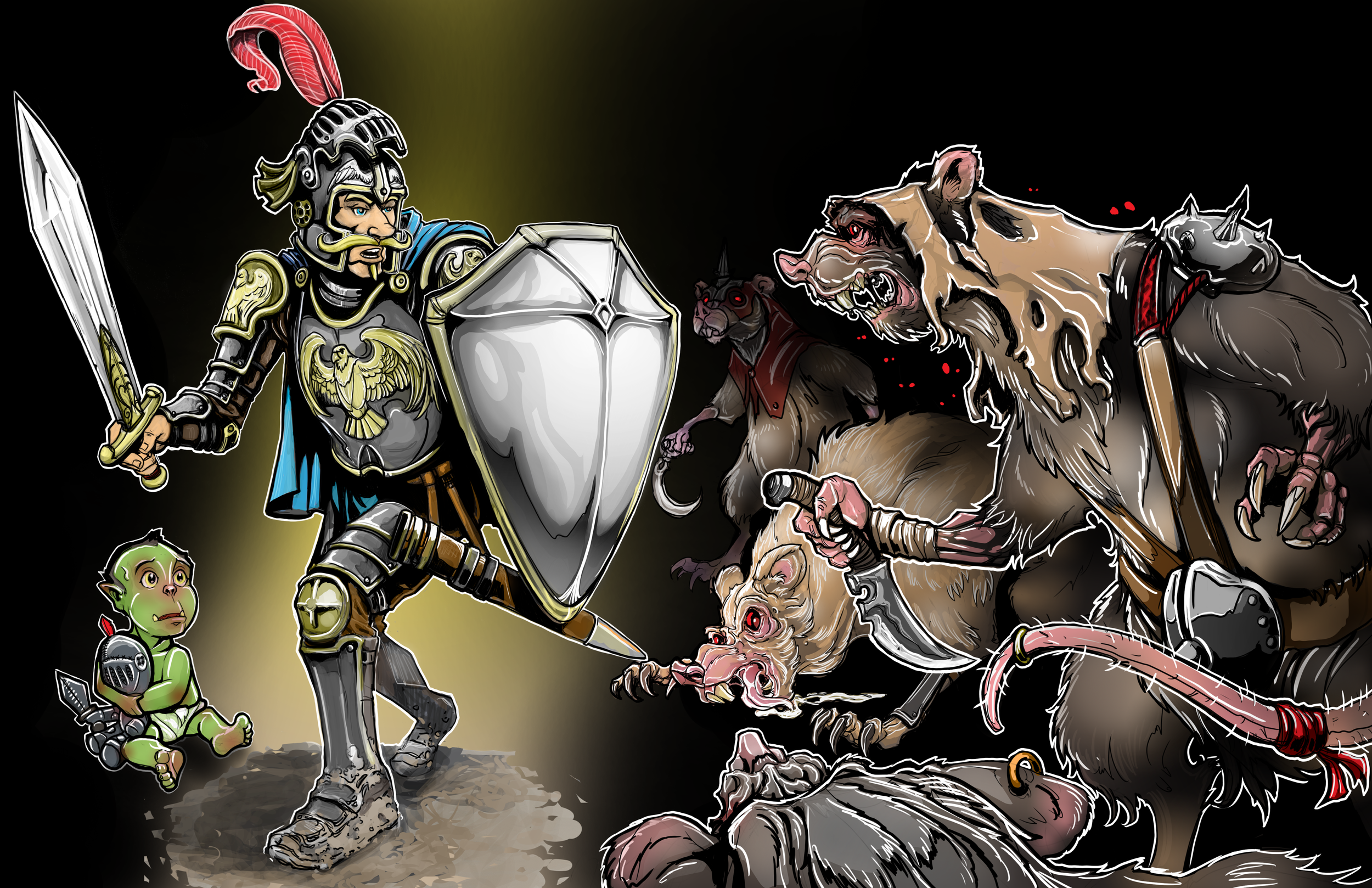City Watch 5e
You have served the community where you grew up, standing as its first line of defense against crime. You aren't a soldier, directing your gaze outward at possible enemies. Instead, your service to your hometown was to help police its populace, protecting the citizenry from lawbreakers and malefactors of every stripe.
You might have been part of the City Watch of Waterdeep, the baton-wielding police force of the City of Splendors, protecting the common folk from thieves and rowdy nobility alike. Or you might have been one of the valiant defenders of Silverymoon, a member of the Silverwatch or even one of the magic-wielding Spellguard.
Perhaps you hail from Neverwinter and have served as one of its Wintershield watchmen, the newly founded branch of guards who vow to keep safe the City of Skilled Hands.
Even if you're not city-born or city-bred, this background can describe your early years as a member of law enforcement. Most settlements of any size have their own constables and police forces, and even smaller communities have sheriffs and bailiffs who stand ready to protect their community.
Source: Sword Coast Adventurer's Guide
Tool Proficiencies: None
Languages: Two of your choice
Equipment: A uniform in the style of your unit and indicative of your rank, a horn with which to summon help, a set of manacles, and a pouch containing 10gp
Variants
Investigator: Rarer than watch or patrol members are a community's investigators, who are responsible for solving crimes after the fact. Though such folk are seldom found in rural areas, nearly every settlement of decent size has at least one or two watch members who have the skill to investigate crime scenes and track down criminals. If your prior experience is as an investigator, you have proficiency in Investigation rather than Athletics.
Features
Watcher's Eye: Your experience in enforcing the law, and dealing with lawbreakers, gives you a feel for local laws and criminals. You can easily find the local outpost of the watch or a similar organization, and just as easily pick out the dens of criminal activity in a community, although you're more likely to be welcome in the former locations rather than the latter.
Suggested Characteristics
Use the tables for the soldier background as the basis for your traits and motivations, modifying the entries when appropriate to suit your identity.
Your bond is likely associated with your fellow watch members or the watch organization itself and almost certainly concerns your community. Your ideal probably involves the fostering of peace and safety. An investigator is likely to have an ideal connected to achieving justice by successfully solving crimes.
Should You Use the City Watch/Investigator Background?
Review by Sam West, Twitter:@CrierKobold
The City Watch background, added in the Sword Coast Adventurer’s Guide, adds close to nothing worth talking about to the game. It steals the tables from the Soldier background, which implies that you probably should just, you know, use the soldier background.
This option does technically have a variant- instead of being a member of the City Watch, you can be an Investigator! What does that variant change? Well, you get Investigation instead of Athletics. Otherwise, they’re identical, and both are a downgrade from PHB options.
Feature: Watcher’s Eye
Watchers Eye is a master class in nothing features. At best, it replaces the need to ask an NPC one question. Most of the time, though, you’re going to never need this feature, as your DM is going to point you towards organizations as the party seeks them out regardless of whether or not somebody can “easily find the local outpost” or “easily pick out the dens of criminal activity”.
Skills:
Athletics, Insight, and Investigation all are skills you’ll commonly use on a variety of characters. I like that this option lets both martial characters looking to bully people around play the “cop” archetype with Athletics being a common skill for contested checks, and detectives can take Insight and Investigation and still find success navigating social situations and searching for clues in dungeons.
Other Proficiencies
Two languages count for nothing to me. Languages rarely come up when adventuring; two bonus languages and nothing else makes this a downgrade versus Soldier who at least come with land vehicles and a gaming set.
Equipment
The horn is a unique item, as it denotes it summons help, and manacles are handy to have access to while adventuring. I’m a fan of both items, and the uniform and rank insignia can give you some opportunity for disguising and filling roles as law enforcement in places you don’t belong.
Bonus Tables
You know how you can tell this option shouldn’t exist? It doesn’t even provide you with unique tables- you are just pointed to the Solider background.
All Together
Useful skills are always a boon, but not enough to set you up with a Background you’ll get mileage out of beyond narrative. You really want an artisan’s tools or kit proficiency alongside side a feature that can do something; City Watch provides yo none of that.
The equipment has an interesting horn in it that may act as a way to call for aid in a specific environment, but most of the time its going to be a loud noise machine. That can be useful, granted, but still doesn’t save this from a Background you shouldn’t consider any higher than picking any of the Player’s Handbook options.
Thank you for visiting!
If you’d like to support this ongoing project, you can do so by buying my books, getting some sweet C&C merch, or joining my Patreon.
The text on this page is Open Game Content, and is licensed for public use under the terms of the Open Game License v1.0a.
‘d20 System’ and the ‘d20 System’ logo are trademarks of Wizards of the Coast, Inc.
and are used according to the terms of the d20 System License version 6.0.
A copy of this License can be found at www.wizards.com/d20.


